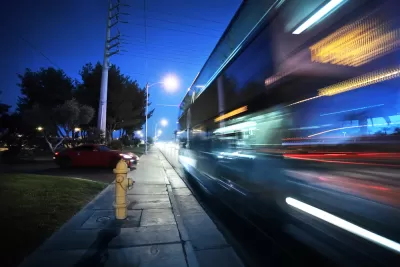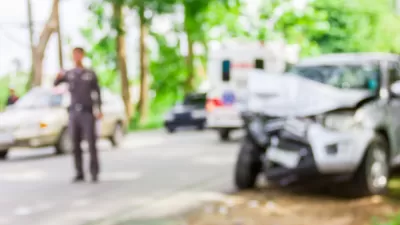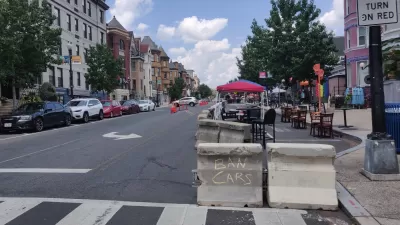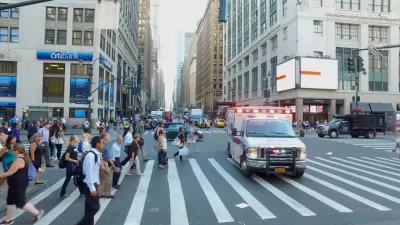The public health epidemic created by dangerous roads, dangerous cars, and dangerous drivers was exacerbated by the COVID-19 pandemic, according to recent data from the National Highway Traffic Safety Administration.

Alissa Walker reports:
An estimated 38,680 people were killed on U.S. roadways in 2020, the National Highway Traffic Safety Administration (NHTSA) confirmed today. This is not just a 7 percent increase from the previous year — it’s the highest number recorded since 2007, it comes after years of (modest) declines, and it happened even as Americans drove 13 percent fewer miles than they had the year before.
The latest data serves as confirmation of preliminary data as well as observations from throughout the pandemic about increasing levels of reckless driving on the relatively empty roads during the pandemic.
Traffic fatalities were up for occupants of passenger vehicles, pedestrians, motorcyclists, and people on bikes. Traffic fatalities were also up according to a litany of metrics like "occupant ejection," on urban interstates, on rural local and collector roads, at night, on the weekend, and due to alcohol, among other measures, according to a press release announcing the new traffic safety data.
That press release includes a soundbite from the acting director of the NHTSA, Steven Cliff, saying that safety is the top priority of the U.S. Department of Transportation. "We intend to use all available tools to reverse these trends and reduce traffic fatalities and injuries,” says Cliff.
According to Walker, the grim statistics are followed by the potential for unprecedented traffic safety reforms at the state level in New York. "For the first time in history, comprehensive and meaningful reform is being proposed in New York State, as a coalition of traffic-safety advocates are supporting eight bills before legislators, including proposed laws that would tighten blood-alcohol limits, allow speed cameras to operate day and night, and create a first-of-its-kind pedestrian-safety rating system for SUVs."
FULL STORY: Traffic Deaths in 2020 Soared to Highest in 13 Years

Maui's Vacation Rental Debate Turns Ugly
Verbal attacks, misinformation campaigns and fistfights plague a high-stakes debate to convert thousands of vacation rentals into long-term housing.

Planetizen Federal Action Tracker
A weekly monitor of how Trump’s orders and actions are impacting planners and planning in America.

In Urban Planning, AI Prompting Could be the New Design Thinking
Creativity has long been key to great urban design. What if we see AI as our new creative partner?

King County Supportive Housing Program Offers Hope for Unhoused Residents
The county is taking a ‘Housing First’ approach that prioritizes getting people into housing, then offering wraparound supportive services.

Researchers Use AI to Get Clearer Picture of US Housing
Analysts are using artificial intelligence to supercharge their research by allowing them to comb through data faster. Though these AI tools can be error prone, they save time and housing researchers are optimistic about the future.

Making Shared Micromobility More Inclusive
Cities and shared mobility system operators can do more to include people with disabilities in planning and operations, per a new report.
Urban Design for Planners 1: Software Tools
This six-course series explores essential urban design concepts using open source software and equips planners with the tools they need to participate fully in the urban design process.
Planning for Universal Design
Learn the tools for implementing Universal Design in planning regulations.
planning NEXT
Appalachian Highlands Housing Partners
Mpact (founded as Rail~Volution)
City of Camden Redevelopment Agency
City of Astoria
City of Portland
City of Laramie





























